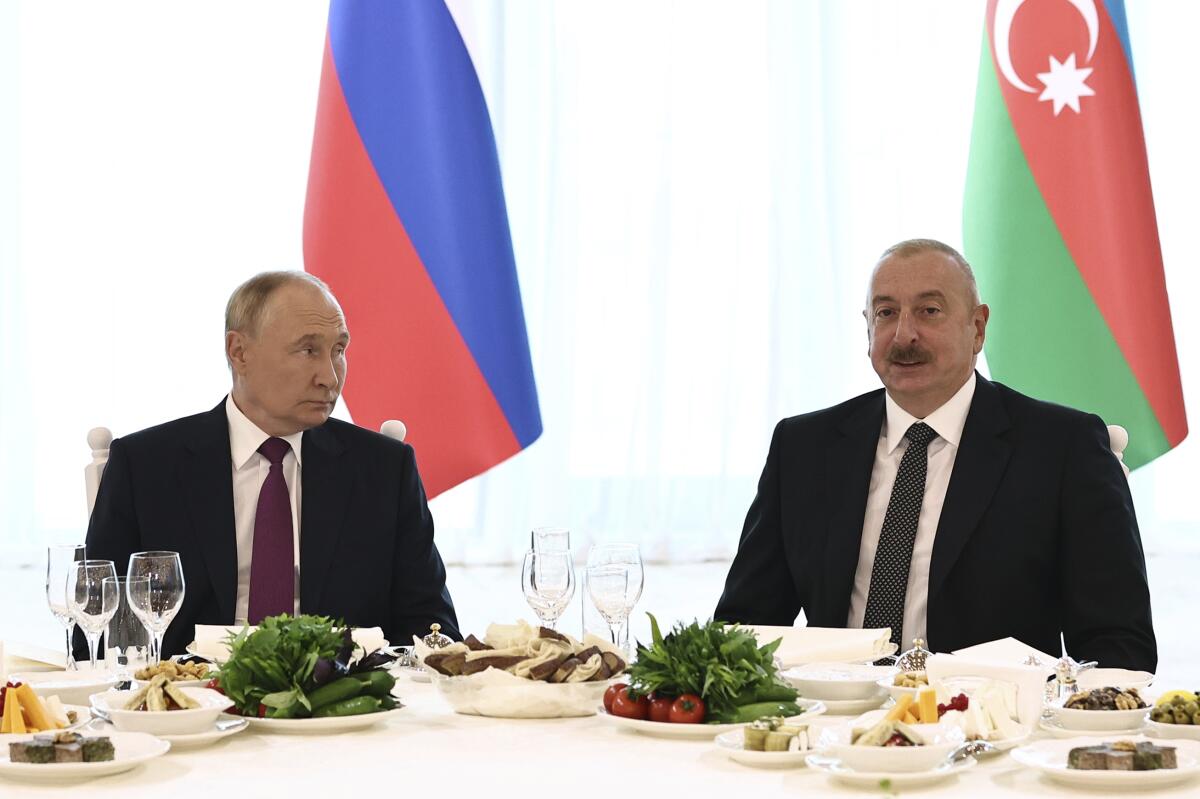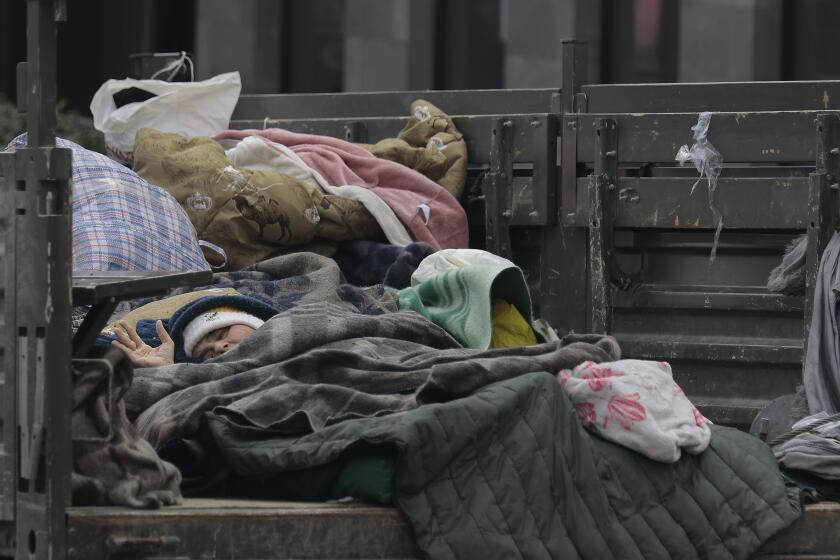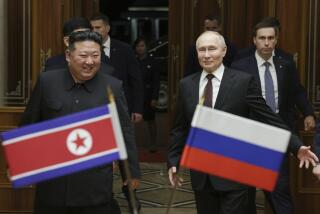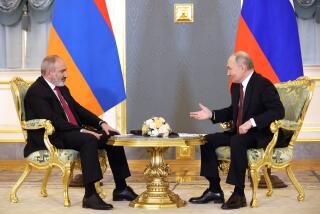Putin meets Azerbaijani president as tensions with Armenia persist

BAKU, Azerbaijan — Russian leader Vladimir Putin held talks with his Azerbaijani counterpart as part of a two-day trip to secure Moscow’s strained trade routes and shore up ties in the South Caucasus.
Business links were high on the agenda as Putin and President Ilham Aliyev met in the Azerbaijani capital of Baku on Monday, with Aliyev announcing that $120 million had been earmarked to boost cargo transport between the two countries.
“We’re talking about the possibility of transporting 15 million tons of cargo per year or more,” he said, adding that the two countries crossed the $4-billion mark for Russia-Azerbaijan turnover last year and “neither of us think that is where things will stop,”
Such ties are a priority for Putin, who increasingly depends on countries such as Azerbaijan to access global markets because of sanctions imposed on Moscow over Russia’s war on Ukraine, said independent political scientist Zardusht Alizade.
“Azerbaijan is an important transit country for Russia at a time when it needs to have free access to world markets, including Iran and ports in the Indian Ocean,” Alizade told the Associated Press.
Armenia finds itself amid one of the worst political crises in its decades of independence following the 1991 collapse of the Soviet Union.
Putin’s overtures have been warmly welcomed by Baku. For Azerbaijan, retaining Moscow’s goodwill is important for national security over tensions with neighboring Armenia, says Alizade.
Russia has been Armenia’s longtime sponsor and ally since the fall of the Soviet Union. But relations between the two countries have become increasingly strained since September 2023, when Azerbaijan waged a lightning military campaign that took control of the Karabakh region, ending three decades of ethnic Armenian separatist rule there.
Armenia accused Russian peacekeepers deployed in the region of failing to stop Azerbaijan’s onslaught. Moscow, which has a military base in Armenia, rejected the accusations, arguing that its troops didn’t have a mandate to intervene.
Sultanova writes for the Associated Press.
More to Read
Sign up for Essential California
The most important California stories and recommendations in your inbox every morning.
You may occasionally receive promotional content from the Los Angeles Times.











